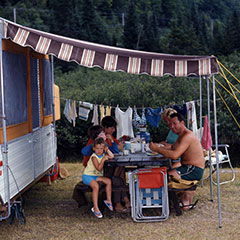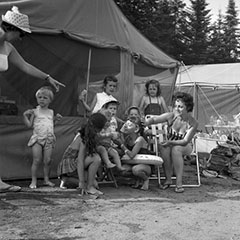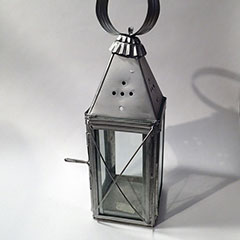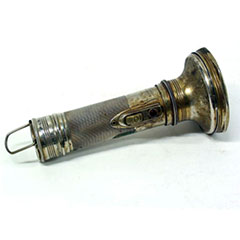Camping and Campfires
While camping used to be both a way of life for the First Nations living on Canadian territory (including Québec) and a necessity for explorers and fur traders, it is now a popular summer pastime in Québec. Hiking, swimming, canoeing, hunting and fishing are often associated with it.
The first recreational campers traveled by canoe, on horseback, or on foot, but the advent of the automobile in the 1920s allowed for a greater mobility. The camping equipment industry took off, with Canadian companies such as Chestnut Canoes (New Brunswick), Jones Leisure Products (British Columbia), Woods Canada (Ontario), and Coleman. In hopes of attracting tourists, towns set up free campgrounds. Private sites also opened, offering more comfortable accommodations. During the postwar period and 1960s, many national parks and other outdoor facilities were created. In 1960, a federal provincial agreement allowed the building of a campground every 160 km along the Trans-Canada Highway. In 1977, Québec adopted a law to protect and preserve its natural heritage. Twenty years later, this territorial protection role is entrusted to the SÉPAQ (Society of outdoor recreation establishments of Québec). The hobby’s popularity skyrocketed throughout North America, and the enthusiasm still hasn’t diminished.
Singing around the Campfire
One of camping’s main activities, the campfire is a great occasion for socializing, telling stories, and singing. The songs heard around the fire pit are extremely diverse and depend on the participants’ tastes. From popular hits – be they American, Canadian, or from Quebec – to traditional songs, any type of music is a sure bet to liven up summer evenings. Two classics are worth mentioning: Feu, feu, joli feu (meaning Fire, Fire, Lovely Fire) which, as its title clearly states, is directly associated with campfire activity, and Ani Couni, a traditional aborigenal song. This Iroquoian lament was normally sung when people had to leave their land following illness or war.
Feu, feu, joli feu (Literal translation)
Fire, fire, lovely fire, your ardour delights us
Fire, fire, lovely fire, go up into the night
Hurray for the light of fire, hurray for its light
Hurray for the warmth of fire, hurray for its warmth
Hurray for the beauty of fire, hurray for its beauty
Hurray for the colour of fire, hurray for its colour
Hurray for the goodness of fire, hurray for its goodness
Hurray for the song of fire, hurray for its song
Hurray for the smell of fire, hurray for its smell
Litanie du feu (The Litany of Fire)
Download audio (14 seconds, 0.23 MB)
Men and women singing the Litanie du feu with a musical arrangement.
Source: www.toujourspret.com
How we love your heat
Fire, fire, pretty fire
Dance in the night, in the night
Ani couni
Ani couni chaouani
Ani couni chaouani
Awawa bikana caïna
Awawa bikana caïna
E aouni bissini
E aouni bissini
Translation
When the evening falls on the Indian village
When the evening falls on the Indian village
The shaman appears in the valley
The shaman appears in the valley
There he is! There he is!
Anicouni
Download audio (28 seconds, 0.44 MB)
A child sings and a male voice replies accompanied by a drum sound.
Source: www.toujourspret.com
Anicouni Chaouani
Awawa Bicana Chaina
Awawa Bicana Chaina
Eauni Bissini
Eauni Bissini





